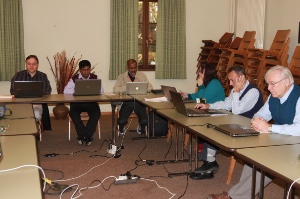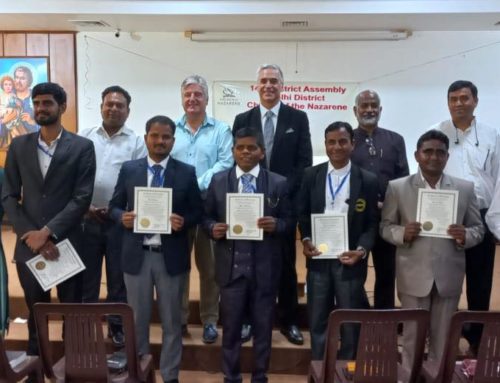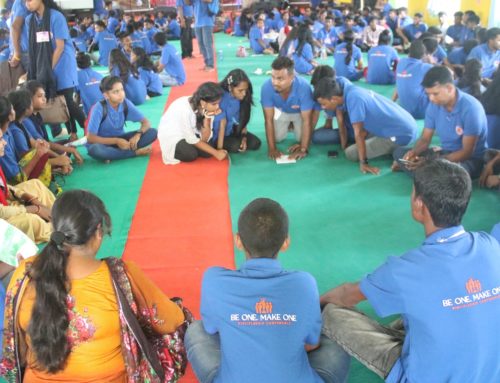 From 12-16 November, the Regional Course of Study Advisory Committee (RCOSAC) and the Eurasia Education Consortium (EEC) gathered in Büsingen, Germany, for its annual meeting to discuss issues, leadership matters and challenges facing education on the region as well as to conduct business.
From 12-16 November, the Regional Course of Study Advisory Committee (RCOSAC) and the Eurasia Education Consortium (EEC) gathered in Büsingen, Germany, for its annual meeting to discuss issues, leadership matters and challenges facing education on the region as well as to conduct business.
The RCOSAC seeks to assure that people being trained in all the schools have the same standard of preparation, which is developed globally and implemented regionally, according to Dan Copp, director of Clergy Development at the denomination’s Global Ministry Center in Lenexa, Kansas, U.S. The RCOSAC has representatives from each regional college, but also includes representatives from different constituencies, such as district superintendents, lay people, field strategy coordinators and pastors. These people bring perspective on what it means to prepare clergy for ministry.
The EEC is made up of principals and deans of all the schools, and it deals with institutional issues and educational philosophy and strategy.
“The annual meetings are times for the representatives and leaders to put their heads together on issues pertaining to education and challenges they are facing,” said the field strategy coordinator for India, who represents FSCs on the RCOSAC.
“In places like India, where the church is expanding at a rapid rate, trying to train the pastors fast enough to get them into the churches” is a challenge that the team discusses, said Kent Brower, vice-principal of Nazarene Theological College (NTC), Manchester, U.K., and chairman of the International Board of Education.
Another challenge is that with the decentralized learning centers of South Asia Nazarene Bible College (SANBC), Eastern Mediterranean Nazarene Bible College (EMNBC) and European Nazarene College (EuNC), maintaining educational standards is important so that each student receives the same level of teaching regardless of which learning center they’re attending, he said.
Peter Rae, academic dean of NTC, said that getting together with other educational providers and leaders from the region provides support to the various higher learning institutions.
“Meeting regularly gives you a tremendous appreciation of the global church and the way we can resource each other,” Rae said. “Just in discussion, an idea will come up and so many ideas have come up in the spaces between formal meetings.”
As part of the RCOSAC meeting, Eastern Mediterranean Nazarene Bible College’s course of study came up for its mid-term reaffirmation, as all the regional education institutions do at different times.
In addition, the RCOSAC is going over the region’s Sourcebook, which guides the various educational institutions in their course of study. At General Assembly, new requirements were passed, so the team needs to update the Regional Sourcebook to include the new requirements. The team reviewed the Sourcebook to make sure it is up to date. (Download the Eurasia Sourcebook Ministral Development.)
The RCOSAC also is editing the District Board of Ministry Handbook, which it created to assist district boards in preparing and interviewing candidates for ordination, said John Haines, regional education coordinator. The Handbook will be shared with other regions around the world that have no such resource.
“This is really a great team,” said Copp. “They work together really well, they understand the issues and how important it is to work with the districts and resource the districts to train pastors. This region understands how important it is to have the district involved.”



